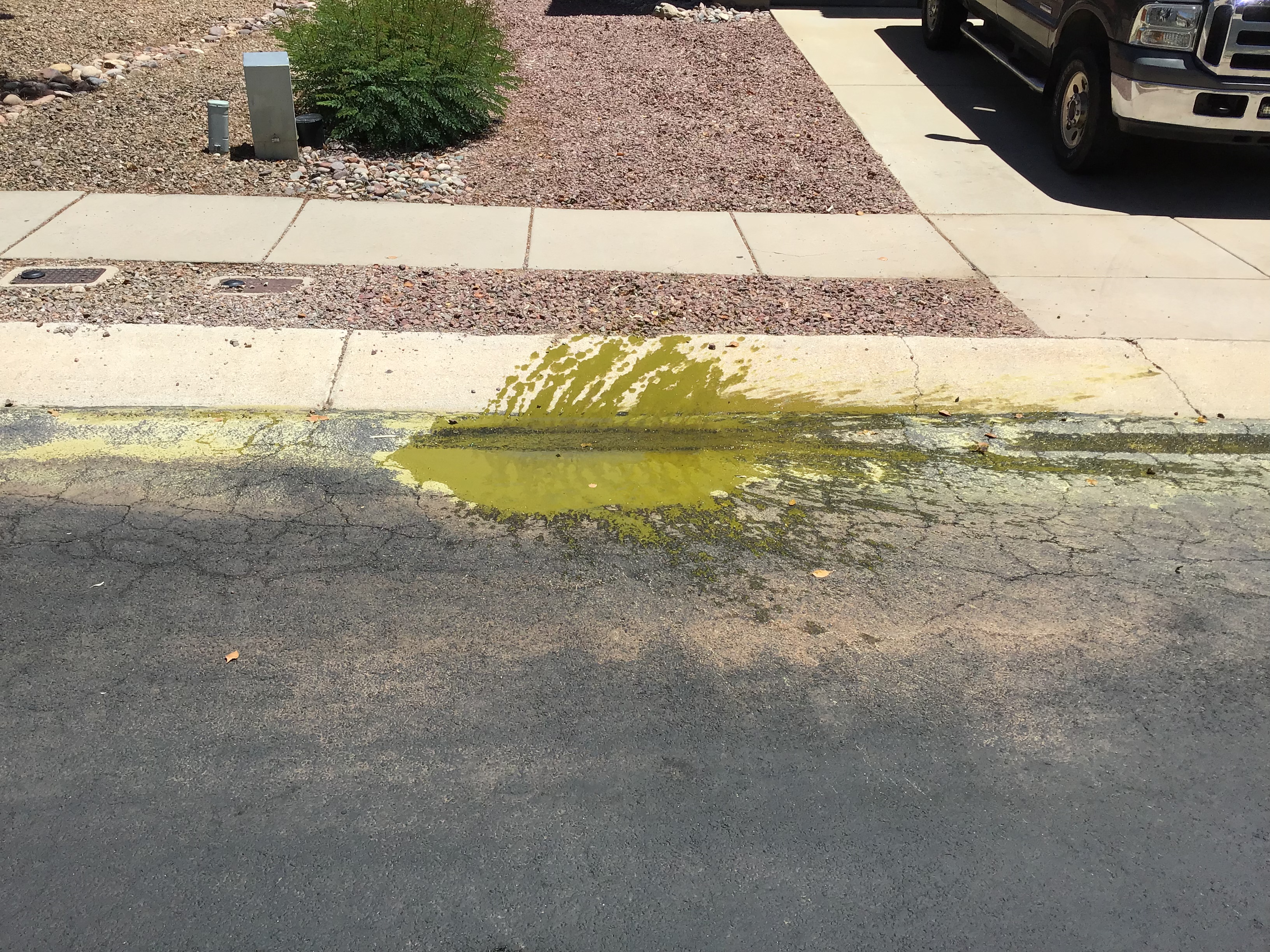PREPARING TO DISCHARGE YOUR POOL OR SPA
You have three options to discharge your water: directly to your landscaping, to a paved road, or to the sewer. Salt water pools must be drained to the sanitary sewer.
If discharging to outdoors, dechlorinate your water by allowing the water to sit in the sun for one week without adding any chlorine, you may also use a chemical dechlorinating additive (available at your local pool store). Test your pool water before discharging to be sure the water is prepared as follows:
- chlorine is below 1 part per million (1milligram/liter)
- pH is between 6.6 and 9
- color is clear and not discolored
- water is free of algae
- water is free of other chemicals
- water is free of floating material or debris
If discharging to the sanitary sewer, find the sewer cleanout located in front of the house, along the side or in the backyard, depending upon the location of the nearest sewer line.
Draining your pool the wrong way leads to Stormwater Pollution

Download the Spa and Pool Drainage Requirements(PDF, 2MB)
Drain prepared water to your grass, trees and bushes on your property allowing it to soak into the ground, if and only if...
- water stays on your property and does not flow onto your neighbor's property
- the flow does not cause erosion
- the environment is not harmed
Drain prepared water to the roadway that has a curb, stormdrain, or into a wash, if and only if...
- water does not flow on to a neighbor's property
- water does not cause any erosion of the drainage channels or washes
- water is non-toxic to the environment
There are no limitations on chlorine content or pH levels for discharges to the sanitary sewer. You can discharge to the sewer if the water is cloudy, discolored or contains algae.
Using a hose connect a siphon or pump with a capacity less than 15 gallons per minute to the access "cap" of sewer cleanout. Run the pump during low-use (afternoon or late night) hours. Control the flow so the sewer line does not overflow.
Use of public manholes or cleanouts within public streets is prohibited due to potential traffic and public safety concerns. Do not drain swimming pool or spa water to your septic system as it may cause system failure.
Discharging pool water to the sanitary sewer is beneficial to the community as it adds to the volume of treated effluent turned into reclaimed water. Reclaimed water is used instead of potable water to irrigate landscapes, which conserves drinking water.
- Backwashing is defined as the rinsing and/or cleaning of cartridge or sand filters. Filter backwashing produces water that may contain chlorine and/or pollutants.
- Filter backwash water may be discharged to the public sewer system at 15 gpm, as described in the procedural memorandum issued by the Pima County Regional Wastewater Reclamation Department. For assistance, please call the Town of Oro Valley Stormwater Utility at 520-229-4850.
- Filter backwash water may not be discharged offsite to streets or washes. It may be discharged onto the pool/spa owner's property as long as it can be absorbed into the ground.
- Do not allow filter backwash water to flow onto a neighboring property, street or alley.
- Proper drainage protects our surface waters and the washes that carry runoff after a rain.
- A large volume of pool or spa water infused with chemicals such as chlorine, bromine, algaecides, biocides, water conditioners and stabilizers are toxic to wildlife.
- Erosion of soil can cause loss of property as well as clogged storm drainage pipelines.
State law requires that freshwater swimming pool and spa water be dechlorinated or dibrominated before being released from the property. All pool drainage not being discharged to the sanitary sewer must be visually clear, colorless, and free of suspended solids, floating material and debris. Saltwater pools may not be drained outdoors. The specific requirements are defined in the Arizona Pollutant Discharge Elimination System (AZPDES) De Minimis General Permit (Part I.B.6.d).
The Pima County Regional Wastewater Reclamation Department has established the Swimming Pool Water Discharge General Guidance generally authorizing the discharge of swimming pool water into the public sewer system.
- Acid wash water may not be drained off the pool/spa owner's property or into the sewer
- Pool or spa water shall not be emptied until the chlorine content is below 1 part per million (1 milligram/liter
- Pool or spa water may not be discharged into unpaved or strip-paved roads and alleys
- Pool or spa water may not cause erosion
- Pools or spas may not be permanently connected to a storm drain, drainage channel, or wash.
Report to the Stormwater Utility illegal discharges that are occurring onto roads or washes, that may or may not be causing erosion to occur.
Contact the Stormwater Utility:
Online: Report a Spill or Illegal Dumping
Email: pw@orovalleyaz.gov
Phone: 520-229-4850
For more information about the Arizona Pollutant Discharge Elimination System (AZPDES) General De Minimis Permit, contact the Arizona Department of Environmental Quality at 602-771-4585.